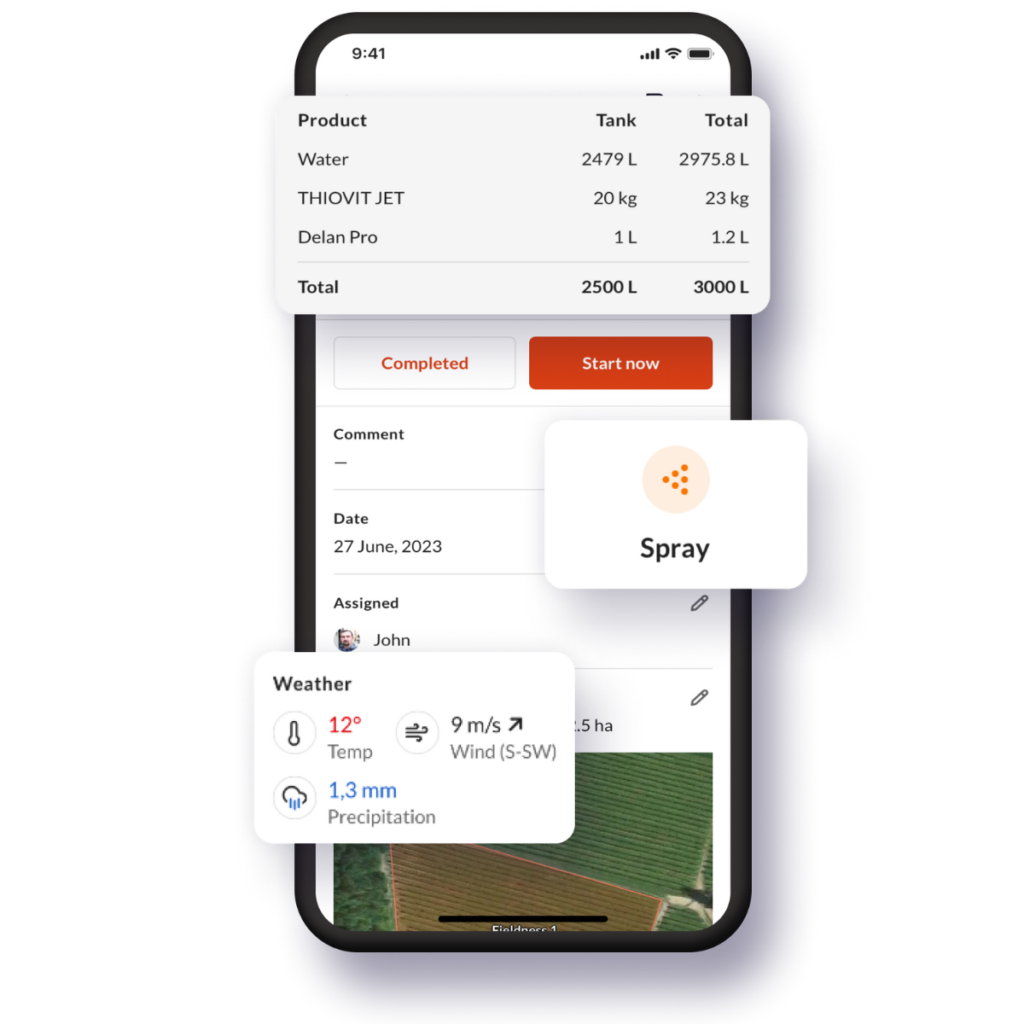Farm Management Software (FMS)
February 10, 2025 Kaye Hope
What is Farm Management Software and how does it differ from Precision Agriculture?
Definition: Farm Management Software (FMS) is a specialized subset of business management tools tailored for the agricultural sector. It’s designed to manage the daily operations of farms, ensuring efficient collection and storage of all essential business data. Unlike the broader tech trends, FMS isn’t about flashy technology or complex integrations but about solving practical, day-to-day challenges faced by farmers.
Key Features:
- Data Management: At its core, FMS should handle the most critical data that farmers need to run their operations effectively. This includes:
- Spray and Fertilizer Logs: Tracking applications to comply with regulations and optimize yield.
- Job Delegation System: Similar to project management, assigning tasks to team members.
- Field Notes: Documentation of pests, diseases, and phenological development stages as basis for agronomy decision making.
- Agronomy Advisor Interactions: Documenting advice and actions for future reference and accountability.Together with Field Notes this creates the foundation for a farm to initiate Integrated Pest Management (IPM).
- Simplicity Over Complexity: Contrary to the industry’s love for IoT and satellite imagery, effective farm management software should prioritize user-friendly interfaces for data entry and retrieval over complex visual analytics or AI integrations. Farmers need tools that work with their existing practices, not systems that require extensive retraining or infrastructure changes.
- Practicality Before Hype: The history of farm management software has been littered with solutions more aligned with corporate storytelling than farmer needs. The real value of FMS lies in replacing outdated methods like pen and paper or spreadsheets with digital solutions that are both accessible and maintainable by farmers themselves.
- Data Ownership and Control: Unlike solutions pushed through supply chains or cooperative databases, ideal FMS allows farmers to own and control their data, enabling them to make informed decisions based on their operation’s specifics without external pressures.
- Integration with Farm Life: The software should be adaptable to the unique rhythms and challenges of farming life, providing flexibility for use in various conditions, whether in the field or at the office.

Challenges and Considerations:
- Adoption Hurdles: There’s a significant gap between the tech visionaries and the farmers on the ground. Software must be designed with the farmer’s daily reality in mind, not just corporate or tech industry aspirations.
- Avoiding the IoT and Data Silos Trap: The promise of integrating all farm machinery data has often led to more data silos rather than actionable insights. FMS should focus on practical data that directly impacts operations.
- Precision Farming Foundation: Before leveraging advanced tech for precision agriculture, farms need a solid base of consistent, reliable data management. FMS is the groundwork for any meaningful advancements in precision farming.
Conclusion:
Farm Management Software should be seen as an evolution from traditional methods to digital, not a revolution that upends current practices. It’s about empowering farmers with tools that match their operational needs, respecting their knowledge and the nuances of agricultural work. The path forward isn’t through silver bullet solutions from tech giants but through software that integrates seamlessly into the farm’s daily life, enhancing efficiency and decision-making without imposing a new tech burden.

